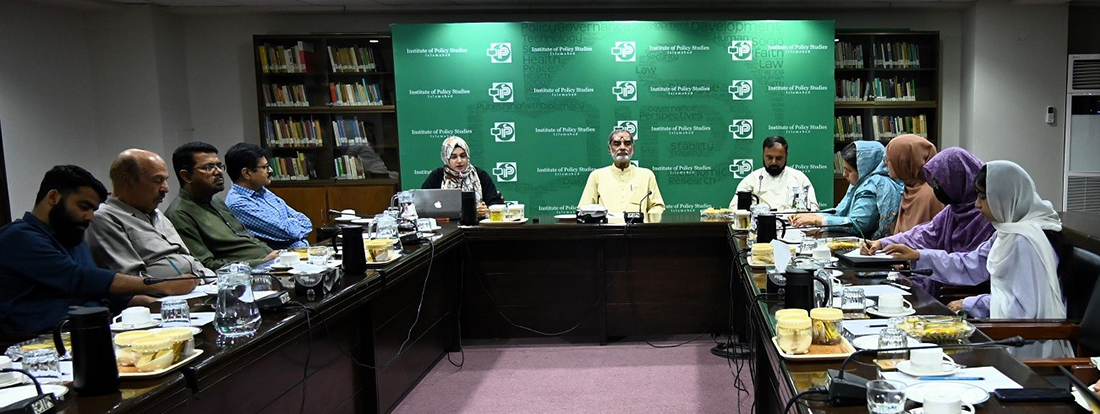Understanding Islamophobia in Europe
Islamophobic populism seen on the rise in Europe
As the June 2024 European Parliament elections draw near, the political landscape across Europe is experiencing significant shifts, marked by the rise of right-wing populist parties. These populist parties across the continent are instrumental in fostering anti-Muslim sentiments. These parties, unified in their opposition to liberal democracy and immigration, are becoming influential in European politics.
Maryam Khan, an IPS alumni who studied ‘Islamophobia in Europe’ as part of her doctoral thesis in Türkiye, shared her research findings during a session held at the Institute of Policy Studies (IPS) on May 17, 2024. Her research sheds light on the increasing prevalence of Islamophobia within European societies.
Talking about the role of populism in developing Islamophobia in Europe, she noted that populism, historically, was not always viewed negatively. However, in contemporary Europe, populism has taken a darker turn. According to her research, European populism today is deeply embedded in fascist ideology, characterized by a radical right-wing narrative. This form of populism thrives on hyper-nationalism and nativism, promoting an ‘us vs. them’ dichotomy. In this narrative, ‘us’ represents the native citizens, while ‘them’ can refer to any minority or perceived external threat, such as Muslims in India.
Maryam further elaborated that from the 1980s until 2014, radical right-wing parties in Europe were relatively inactive. However, recent years have seen their resurgence. The European parties, including the European People’s Party, Social Democrats, and European Greens, are now being challenged by a fourth group that promotes xenophobic and Islamophobic rhetoric.
These populist parties advocate stringent immigration controls and oppose the deepening and widening of the European Union. They support Brexit-like movements and view the influx of Middle Eastern migrants as an ‘immigrant crisis,’ often using inflammatory language such as the historically loaded slogan ‘Muslims are Coming.’
As she mentioned, the growing acceptance of these populist parties in Europe poses significant risks. Their political strategy is rooted in opposition, often targeting immigration and asylum policies. Their influence has led to stricter asylum laws and a reduction in support for migrants. These parties are anti-EU and believe that the Union should revert to smaller unions like the European Coal and Steel Community. The EU in its current form is unacceptable to these populist parties.
Maryam highlighted that the upcoming elections are crucial. If right-wing populist parties succeed in forming a major bloc within the European Parliament, they could become the second-largest group in the parliament. This would enable them to nominate their commissions and potentially veto critical decisions, altering the course of EU policies.
As Europe heads into the 2024 elections, the rise of Islamophobic populism remains a central issue. The outcome of these elections will significantly impact the future direction of the EU and its commitment to diversity and inclusion.
Maryam also shared her insights into the current state of affairs in Türkiye, the challenges at state and societal levels, and emerging scenarios.













